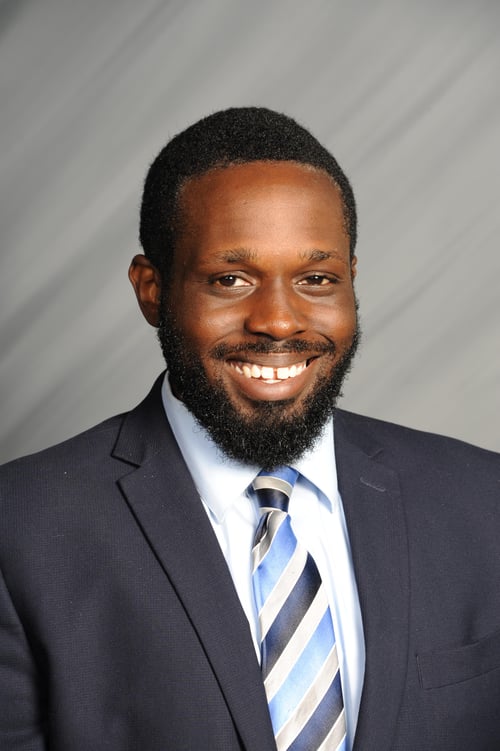.jpg?width=900&name=HAMME%2c%20Cristina%20-%20DOH%2006%2017%2015%20-%20Resident%20(1).jpg)
Many people suffer from sleepless nights. Trouble sleeping can be caused by a number of issues. Insomnia can be caused by physical symptoms like pain, increased urination, hot flashes or shortness breath, or by psychological issues like stress, anxiety or depression. These symptoms can make you unable to relax and stay asleep. Medications can also contribute to difficulty sleeping. Stimulants, steroids, diuretics, opioids and some anti-depressants can keep you awake at night. Psychiatric disorders like depression and bipolar disorder can also affect your sleep cycle. Some people with depression will have trouble sleeping while other with depression will sleep too much. People with bipolar disorder may stay up several days with little to no sleep and not feel tired. Your doctor will need a detailed history to pinpoint the exact cause of your problem.
Several sleep disorders can lead to insomnia. Obstructive sleep apnea or restless leg syndrome can initially appear as insomnia. In obstructive sleep apnea, there are periods of time where you stop breathing called apneas. These apneas can be life threatening because your body is not receiving the oxygen it needs. These can be diagnosed by a sleep study. A sleep study can be done in a sleep lab or even at home. In addition, restless leg syndrome can make it hard to relax at night. This syndrome can be due to low vitamin D levels or certain medications. It is important to discuss all the medicines you are taking with your doctor.
The amount of sleep we need actually changes over time. Children and infants need more sleep that adults. Many older adults actually need less sleep and will wake up in the early morning. Whereas, teenagers’ hormones make them more likely to stay up late and sleep late. It is important to consider how much sleep you actually need.
Many people with insomnia can improve their sleep with good bedtime habits. It is important to set regular bedtime and wake up times, even as adults. People who did shift work will often experience difficulty adjusting to staying up all night and sleeping during the day. It is best to go to sleep within a one-hour window each night and get up at the same time, even on the weekends. Taking naps throughout the day can disrupt your sleep cycle. In addition, to setting a regular schedule, it is important to avoid using your phone, tv or any screens 30 minutes prior to go to bed. Reading a book, taking a bath or mediating are good ways to unwind at the end of the day. You should not do other things in your bed like watching tv or eating in bed. You should only use your bed for sleep or sex. Set yourself up for a restful night by creating a comfortable bedroom free from distractions. Ear plugs or white noise can be useful along with black out shades or face masks. Exercise during the daytime can help you fall asleep faster but should be avoided 2 hours right before bedtime. Obviously, caffeine and other stimulants should be avoided later in the day. While sleep aids should be avoided, melatonin is a vitamin supplement used for sleep that is safe to use even in kids. Other medications can become habit forming and should be avoided if possible.
Try following these tips to fall asleep tonight:
- Maintain a consistent bedtime and wake time
- All screens (phones, tv, tablets, etc.) should be turned off 30 minutes prior to bed
- Only use your bed for sleep and sex
- Avoid eating or drinking 2 hours before sleeping
- Avoid caffeine after lunch
- Limit alcohol and nicotine
- Exercise is encouraged but avoid rigorous exercise 2 hours before bedtime
- Avoid napping during the daytime
- Keep bedroom cool, quiet and dark
.jpg?width=128&name=HAMME%2c%20Cristina%20-%20DOH%2006%2017%2015%20-%20Resident%20(1).jpg) Dr. Hamme is a board certified Family Physician faculty member who sees patients of all ages at Lone Star Family Health Center, a non-profit 501©3 Federally Qualified Health Center operating facilities in Conroe, Spring, Willis, Grangerland, and Huntsville, and serving as home to a fully integrated Family Medicine Residency Program to increase the number of Family Medicine physicians for Texas and our community.
Dr. Hamme is a board certified Family Physician faculty member who sees patients of all ages at Lone Star Family Health Center, a non-profit 501©3 Federally Qualified Health Center operating facilities in Conroe, Spring, Willis, Grangerland, and Huntsville, and serving as home to a fully integrated Family Medicine Residency Program to increase the number of Family Medicine physicians for Texas and our community.



